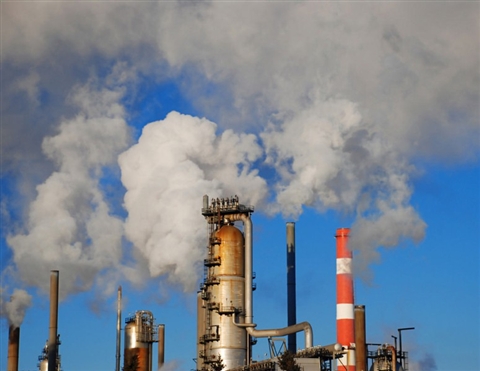China starts a green revolution
- By John Ross
 0 Comment(s)
0 Comment(s) Print
Print E-mail China.org.cn, September 28, 2013
E-mail China.org.cn, September 28, 2013
This month China announced its most sweeping and comprehensive policies so far to deal with air pollution. The priority given to the issue was shown not only by strong policy measures but teeth given to implementing them.
|
|
|
This month China announced its most sweeping and comprehensive policies so far to deal with air pollution. [File photo] |
National-level air quality monitoring sites will be run directly by the National Environmental Monitoring Center. Sites will be set up in every county-level city. There will be three sites in each municipality, two in each provincial capital and one in each of the other cities. The Communist Party's Organization Department was allocated direct participation in implementing an environmental action plan. For the first time, this department has the power to appoint or dismiss officials, directly affecting local governments which fail to reach targets set out in the plan. By this step the prestige of the Communist Party is directly put on the line in achieving the targets, as the population will conclude that it bears direct responsibility for the success or failure in achieving them.
The plan's central policy objective is to achieve a marked improvement in air quality over the next five years. Concentration levels of breathable suspended particles with a diameter of 10 microns or less must fall by at least 10 percent by 2017 from the levels in 2012. Tougher objectives have been set in key regions. In the Beijing-Tianjin-Hebei area concentration levels of PM2.5 particles -- those smaller than 2.5 microns in diameter, which pass deep into the lungs -- must be cut by 25 percent by 2017 from 2012 levels. The target for the Yangtze River Delta region is a reduction of 20 percent. Strong measures to achieve this include, for example, closing every coal fired power station in the Beijing region.
There is no secret regarding the reason for this sharp increase in priority in dealing with air pollution. The smog and pollution problem in China earlier this year, particularly in Beijing and the neighboring Hebei region, attracted widespread attention. Regrettably, and as a sort of testimony to humanity's common international short-sightedness, prior warnings by experts of the serious danger from air pollution were insufficient to push the issue radically up the policy agenda. Britain had a similar experience to China as it took the national catastrophe of the 1952 Great London Smog, in which 12,000 people died, to propel through a series of strong measures such as the UK's Clean Air Act.






